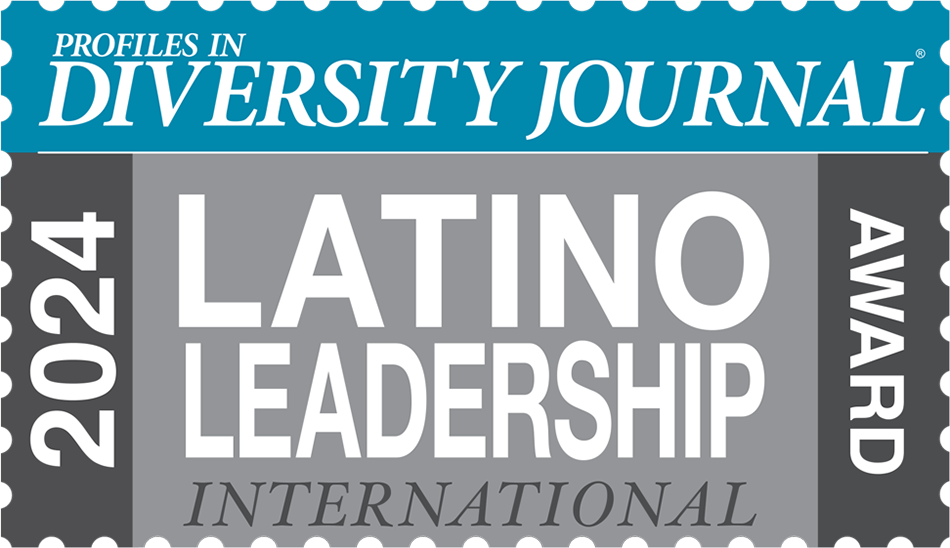
The 4th Annual Latino Leadership Awards
PDJ Salutes our Fourth Class of Latino Leadership
Award Winners
For 26 years, Profiles in Diversity Journal® has been recognizing remarkable individuals who have forged new paths, embraced challenges, mentored others, championed diversity and inclusion in both workplaces and communities, and excelled in their respective fields. Now, PDJ proudly presents its fourth Latino Leadership Awards.
The profiles featured in this edition pay tribute to the dedication and remarkable accomplishments of these Latino Leaders. Each awardee has generously shared insights through intriguing questions and essays, offering our readers an opportunity to better acquaint themselves with these dynamic, multilingual, and pioneering individuals.
Welcome to PDJ’s fourth annual Latino Leadership Awards.
2024 Latino Leadership Award Winners
- Akin – Robert Salcido – Partner
- Advanced Micro Devices – Adrian Barrera – Director, Systems Design Engineering
- AMD – Nico Canovas – Sr. Director, Latin America
- Comcast – Abisaí Berthely Reyes – Sr. Manager, Strategic Initiatives
- Crowell & Moring LLP – Meshach Rhoades – Managing Partner, Denver Office
- Curacao – Ariela Nerubay – Chief Marketing Office
- Dechert LLP – Christina Guerola Sarchio – Partner, Dechert LLP
- Freddie Mac – Carolina Thompson – Director of Strategy & Initiatives
- Freddie Mac – Dan Ticona – Director, Mission Innovation
- Knobbe, Martens, Olson & Bear, LLP – Mark Lezama – Partner; Co-Chair Copyright Litigation
- L.B. Hall Enterprises, Inc. A/K/A L.B. Hall Fireproofing – Estefania Roa – President
- Latham & Watkins – Carlos Ardila – Partner
- MacKay Shields LLC – Rene A. Bustamante – Executive Managing Director, Chief Administrative Officer
- New American Funding – Patty Arvielo – Co-Founder and CEO
- Norton Rose Fulbright – Mayling C. Blanco – Partner
- PepsiCo Beverages North America – Johannes Evenblij Garza – Global Sales and Marketing Transformation
- Robins Kaplan LLP – Jason R. Fair – Deputy Managing Partner, Los Angeles Office; Co-Chair, Diversity, Equity and Inclusion Committee
- Transamerica – Brandi Cruz – Manager, Operational Risk Management
- Transamerica – Maurice Perkins – Chief Corporate Affairs Officer
- Washington Capital Partners – Daniel Huertas – CEO and Co-Founder
- Webster Bank – Carlos R. Rivera – Senior Managing Director – Commercial Marketing
- Wilson Turner Kosmo LLP – Vivian Adame – Associate Attorney
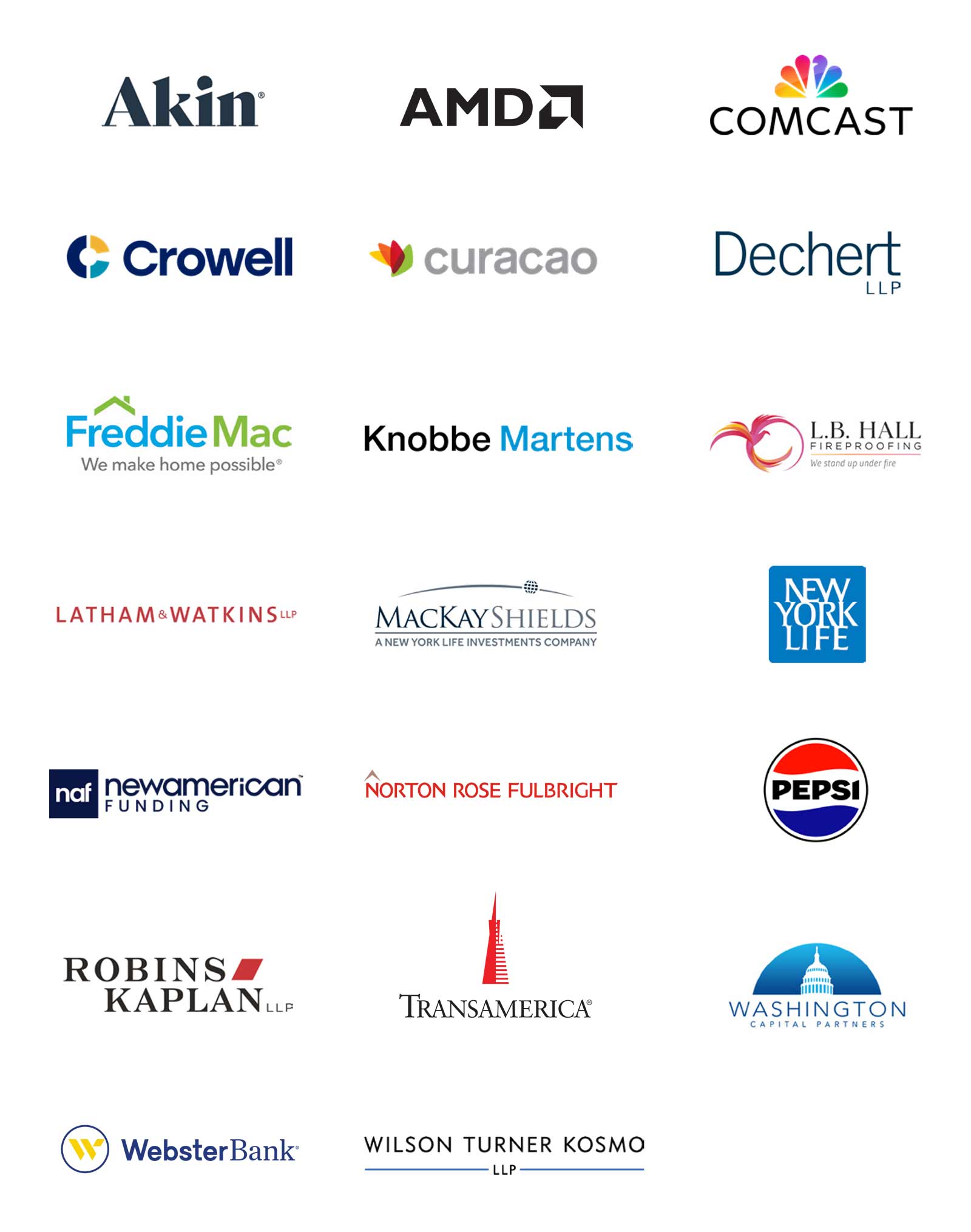
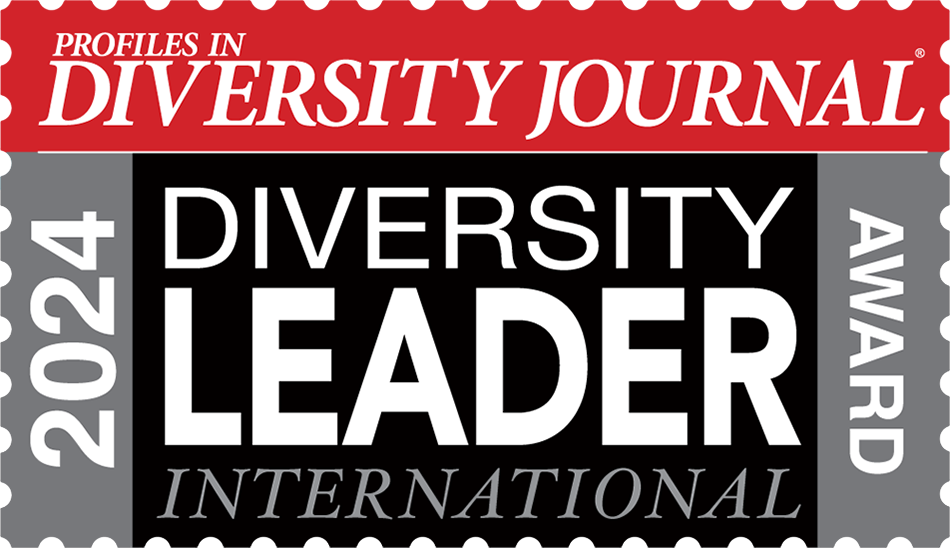
The 16th Annual Diversity Leader Awards
PDJ Celebrates the Creativity and Commitment of this Year’s Diversity Leader Award Recipients
Each year, as PDJ continues its tradition of honoring organizations and individual Diversity Leaders committed to advancing diversity, we are consistently impressed by their dedication and innovation.
The Diversity Leaders highlighted in the following pages are actively extending their reach, both locally and globally, to embrace a growing array of employees, vendors, clients, and communities. Diversity, inclusion, and equity serve as the cornerstone of their endeavors. For many, the pursuit of diversity holds personal significance, stemming from experiences of exclusion or neglect based on gender, ethnicity, or cultural background.
This year’s award recipients are diligently fostering connections with a broader spectrum of potential hires, engaging with women- and minority-owned vendors, contributing to their communities, and educating company leaders and hiring managers. Above all, they are nurturing workplaces where every employee is encouraged to bring their true selves to work each day.
We extend an invitation to acquaint yourself with these remarkable Diversity Leaders. Within their stories, you may uncover insights and strategies applicable to propelling your own organization forward.
2024 Diversity Leader Award Winners
- Allnex – Tina Collins – HR Manager and D&I Champion, Americas
- Dechert LLP – Satra Sampson-Arokium – Chief Diversity, Equity and Inclusion Officer
- Elford – Denise Gilliam – Director of Inclusion & Outreach
- Epiq Global – Malia Turner – Sr. Global DEI Program Manager
- Latham & Watkins – Daniel Dominguez – Partner & Vice Chair of the Diversity Leadership Committee
- MSC Industrial Supply – JaCynthia Little – Director, Diversity, Equity & Inclusion
- New York Life – Tina Gupta – Senior Vice President
- Norton Rose Fulbright – Katherine Tapley – US Chief of Diversity, Equity and Inclusion Officer
- Squire Patton Boggs – Kathy Bowman-Williams – Global Director of Diversity Equity and Inclusion
- Upbound Group – Tran Taylor – EVP – CHRO – CDO
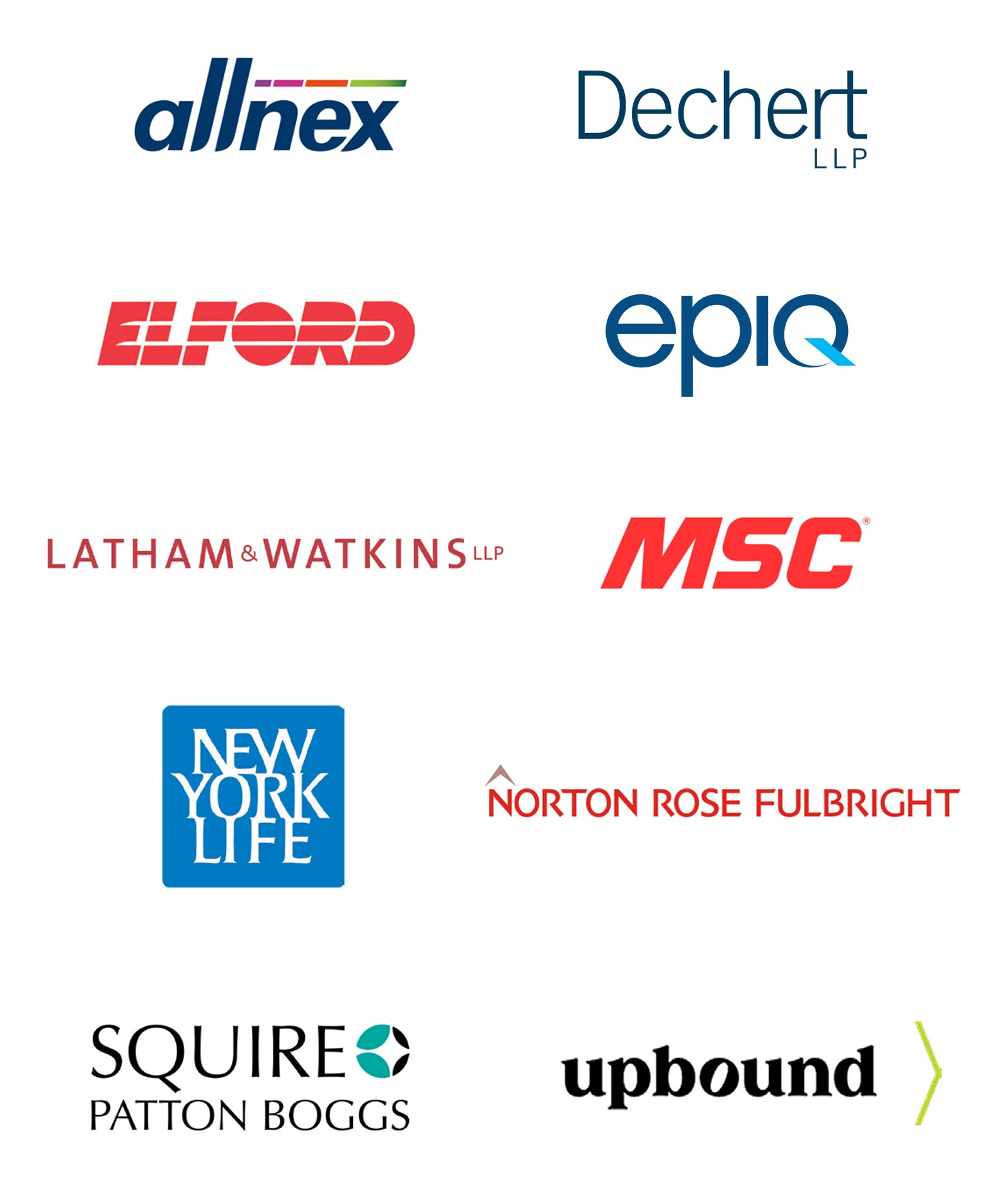
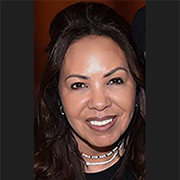
Tina Collins
HR Manager and D&I Champion, Americas
Allnex
Headquarters: Alpharetta, GA
Industry: Chemical Manufacturing
CEO: Miguel Mantas
Website: www.allnex.com
Credentials: Bachelors from Spring Arbor University, MBA from University of Phoenix
Research shows that companies with more women on executive teams and in senior leadership roles outperform those without and are more profitable. Alllnex understands the importance and value of women in leadership roles, and our diversity goals support this mindset. Our progress is intentional and through joint efforts with the allnex global community we are moving this dial in the right direction. As we begin to really ramp up our diversity and inclusion initiatives, I’m really proud to be an integral part of this team.
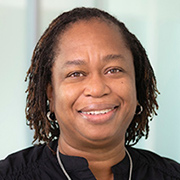
Satra Sampson-Arokium
Chief Diversity, Equity and Inclusion Officer
Dechert LLP
Headquarters: Philadelphia/New York
Industry: Law Firm
CEO: David Forti and Mark Thierfelder (Co-Chairs)
Website: www.dechert.com
Credentials: Masters of Public Administration from Marist College; B.A. in Political Science from the State University of New York at Albany
Satra Sampson-Arokium’s expertise is in the strategic development of best-in-class DEI initiatives and programming. She partners with leadership to shift mindsets, behaviors, and practices towards more equitable and inclusive leadership for individuals and teams at Dechert as well as at other organizations.
Prior to joining Dechert in 2017, Mrs. Sampson-Arokium served in the same capacity at global law firm Arnold & Porter Kaye Scholer LLP. She also spent over a decade at Deloitte in various roles, including senior consultant for Global Diversity.
Mrs. Sampson-Arokium is a current and former board member of the Association of Law Firm Diversity Professionals (ALFDP) and former president of the Eastern Fairfield County Chapter and empowerment chair of the Eastern Region of Jack & Jill of America, Inc.

Denise Gilliam
Director of Inclusion & Outreach
Elford
Headquarters: Columbus, OH
Industry: Construction Management
CEO: Mike Fitzpatrick
Website: www.elford.com
Credentials: MS, Human Services, BA, Psychology, SHRM-SCP, PHR
Diversity in all levels of an organization and amongst its client base provides for fair opportunities for all, innovation within the organization, and helps to create stronger communities for our nation.

Malia Turner
Sr. Global DEI Program Manager
Epiq Global
Headquarters: New York, NY
Industry: Global Technology- Services Leader
CEO: Dave Dobson
Website: www.epiqglobal.com/en-us
Credentials: Certified Diversity Professional and Certified Scrum Master
My purpose is rooted in the belief that education is the key to building an inclusive culture. In my journey as a Diversity Leader, I’ve learned that true allyship begins with empathy and the willingness to learn from those we aim to serve. I see my role as a bridge-builder within my company, fostering a culture of allyship where every individual is encouraged to learn from and stand with their colleagues. Through education and community, we can break down barriers, challenge biases, and create a workplace where everyone can thrive. Inclusion is not a solitary endeavor but a collective commitment. It’s my purpose to ensure that our organization is filled with allies who understand the power of empathy, embrace the importance of diversity, and actively work together to create a more inclusive future.
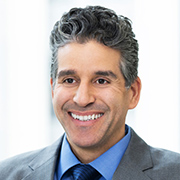
Daniel Dominguez
Partner & Vice Chair of the Diversity Leadership Committee
Latham & Watkins
Industry: Law
CEO: Richard Trobman, Chair and Managing Partner
Website: www.lw.com
Credentials: Benjamin N. Cardozo School of Law
As Global Vice Chair of Latham & Watkins’ Diversity Leadership Committee (DLC), I have spearheaded efforts to cultivate an environment in which you belong as you are. In 2023, Latham & Watkins:
- Implemented mechanisms to strengthen our culture of allyship, inclusion, and belonging, including building out additional infrastructure for our two newest affinity groups, our Disability & Neurodiversity Network and our US Military & Veterans Network.
- Recruited top legal talent representing a rich diversity of backgrounds. For example, in 2023, we welcomed one of our largest and most diverse summer associate classes — 55% female, 57% racial/ethnic minority, 15% LGBTQ+, and 44% first-generation professional — outpacing the top-100 US law schools’ five-year average for underrepresented racial/ethnic minority hires and first-generation professionals.
- Launched a pipeline program in collaboration with Yale Law School.
- Designed and delivered a new workshop specifically for our senior lawyers on leading inclusive teams and investing mentorship and sponsorship capital in a diverse group of junior lawyers.
- Partnered with over 60 clients to provide mentorship for second-year law students who have shown a demonstrated commitment to DEI.
From my perspective, a lack of transparency can create challenges, and so we strive to remove opaqueness about how decisions, both small and large, are made regarding firm business, including how advancement in the firm is determined. Continuing to shed light on our business processes plays a vital role in building an environment where all colleagues can thrive. In my own career journey, I knew I needed to do good work and develop within an organization that had a small town in a big city feel. I had the benefit of being surrounded by people who were clear about what the expectations of what that good work looked like, which made it easier to achieve. The firm is much larger now, so the question becomes how do we foster continued direct messaging and small town transparency on a bigger scale to maximize the development, retention, and prospects for progression for all of our associates.
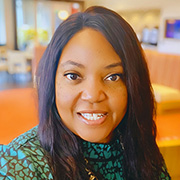
JaCynthia Little
Director, Diversity, Equity & Inclusion
MSC Industrial Supply
Headquarters: Melville, NY and Davidson, NC
Industry: Supply Chain Distribution, Metalworking
CEO: Erik Gershwind
Website: www.mscdirect.com
Credentials: MBA, University of Phoenix, Black Executive Leadership Program, McKinsey & Co, Inclusive Leadership, University of Colorado
MSC is on a journey to inclusive excellence. The work that it strives to do in this space aligns with core values of doing the right thing and there is no finish line. The work demonstrates that we are better together, and that DEI is not “one of us,” it is “all of us.”

Tina Gupta
Senior Vice President
New York Life
Headquarters: New York, NY
Industry: Financial Services
CEO: Craig DeSanto
Website: www.newyorklife.com
Credentials: BSc, Psychology and Management from Aston University; MSc, Work and Organizational Psychology from University of Nottingham
The principles of building a diverse, equitable and inclusive workplace deeply guide and are core to my work ethic and leadership style. By engaging with curiosity and open-mindedness, I hope to unlock a world of inspiration and learning that ultimately leaves an impact.
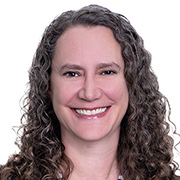
Katherine Tapley
US Chief of Diversity, Equity and Inclusion Officer
Norton Rose Fulbright
Headquarters: Houston and New York (US); London (Global)
Industry: Law firm
CEO: Jeff Cody, US managing partner
Website: www.nortonrosefulbright.com/en-us
Credentials: JD, summa cum laude, St. Mary’s University School of Law, 2007; BA, BJ, French and Journalism with Public Relations Concentration, The University of Texas at Austin, 1999
Advancing equity in the workplace and in our communities is critical to Norton Rose Fulbright as a firm. Now more than ever, the company is committed to a diverse and inclusive workplace that is free from discrimination and injustice of any kind. It will continue to develop and execute plans of action to enact meaningful change at the firm and in our communities. It is imperative that the company recruits, retains and advances diverse lawyers and business services personnel, ensuring there is an abundant pipeline of qualified and diverse talent ready and willing to take on leadership roles in a firm where they know they are respected and appreciated. Continuing to grow diversity among the firm’s leadership is an important step in institutionalizing a diverse and inclusive culture. While Norton Rose Fulbright is proud of the strides it has made toward greater gender and racial equity, it cannot rest idly on that progress. It must fortify the infrastructure that has been developed, continuing to cultivate and foster programs that ensure a culture that is not just “equal,” but aggressively fair. The company must move beyond feelings of “I’m not doing anything wrong” towards an affirmative commitment to do something right. This requires individual honesty and accountability from all levels of firm personnel and is an important part of the work in this role.






